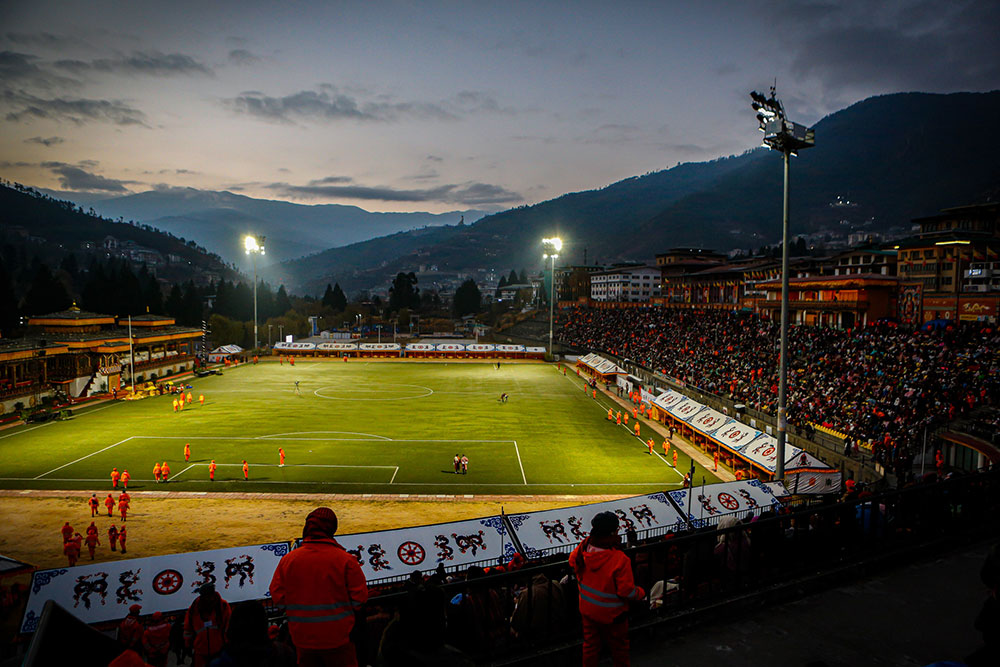Believe in Damtshig
The organisers of the 115 National Day celebrations reminded us that December 17, 2022, was special. There was, indeed, a reassuring sense of identity as we celebrated National Day, in remote villages like Shinkaur Lauri and Sakteng, to the overseas diaspora which made Perth and Queens feel like dzongkhags in Bhutan, to the Bhutanese family gathered around His Majesty The King and the Royal Family in Thimphu.
The unique ceremonies, rich in symbolism, remind us of the identity that we strive to preserve. The mix of mature and young entertainers and the spontaneity of the crowd remind us that it is fun to be Bhutanese. We reflect on His Majesty The King’s Royal Address, and ask ourselves, what is the “Bhutanese-ness” of being Bhutanese?
We look back at the past few years of a pandemic with a sense of relief and achievement that we have overcome a crisis which devastated much of the world. The experience leaves us better prepared for misfortunes that are inevitable and with greater enthusiasm for the task of nation building.
What was loud and clear, in the Royal Address, was that Bhutanese must draw on the inherent values and virtues that have kept us grounded in the past, mindful of the present, and optimistic about the future. Bhutan is often described as an extraordinary country and the Bhutanese as a unique people. This is not because we eat ema datshi, or because we wear the kira and gho, or because we speak four languages and 19 dialects. It is because we have ingrained a shared consciousness based on a value system nurtured over the centuries.
For modern architects of nation branding Bhutan invokes images of peace and happiness, pristine ecology, rich human culture, and a unique system of governance. They sense a past steeped in mysticism, a present which acknowledges pragmatic reality, and a future which will be developed as a gift to posterity.
In the Bhutanese context, this is damtshig, which has nurtured and shaped Bhutanese conscience, thought, character and identity. It is the basis of the Bhutanese system which defines the unique functioning of government and society.
Today, perhaps more than ever before, we need to ponder deeply on a concept that is too often associated only with tradition but is applicable and relevant for all time. It is an all-encompassing value, even viewed with a sense of veneration. And it is this sense of awe which leaves youth, particularly, unclear about its meaning and even somewhat intimidated.
Damtshig is interpreted in the context it is used. His Majesty The King recalled the blessings and teachings of Guru Rinpoche in the eighth century when Buddhism took roots in Bhutan and the leadership of Zhabdrung Ngawang Namgyel who created the Bhutanese polity in the 17th century. Their blessings and teachings remain omnipresence in our lives today. The spiritual definition of damtshig is samaya, the sacred bond between Guru and devotee which should not be transgressed. It is a practitioner’s commitment to the practice.
As a pragmatic guide for nation building and governance, our ancestors adopted the value system of tha damtshig. This is the sacred bond between the King and people, marked by a strong sense of loyalty. Governance, in its real and complete sense, means the overall functioning of society, so it emphasises the reciprocal relationships between nation and citizen, leader and follower, employer and employee, teacher and student, parents and children, fidelity between married couples, siblings, friends, colleagues…
We understand tha damtshig as the virtues of a good human being, as an essential trait for the inter-connectedness of family, community, and nation. In the individual it means integrity, morality, justice, duty, obligation, affection, faith, trust, service, gratitude…
With the initiation of historic national transformation, there is some inevitable concern as the times change and the Bhutanese brand evolves. With globalisation and so-called development, social cohesion is disintegrating because of the negative side effects of change – rapid urbanisation, fragmentation of extended families, breakdown of traditional values, growing individualism…
So it is important that Bhutanese people, particularly the youth, understand and feel the significance of tha damtshig which enabled us to overcome the ordeal of the past few years, which is the spirit of the current transformation, and from where we draw the momentum for the path ahead. Damtshig is vital in the process of transformation to evolve and thrive with change.
Today’s transformation is the manifestation of damtshig from a Sovereign who defines a clear vision, inspires a new sense of vitality, and unsheathes the merit of age-old values. For society, tha damtshig means to be united in our resilience, capability, sense of responsibility, and selflessness. It is the value system that defines Bhutan and the Bhutanese identity.
Contributed by
Dasho Kinley Dorji


